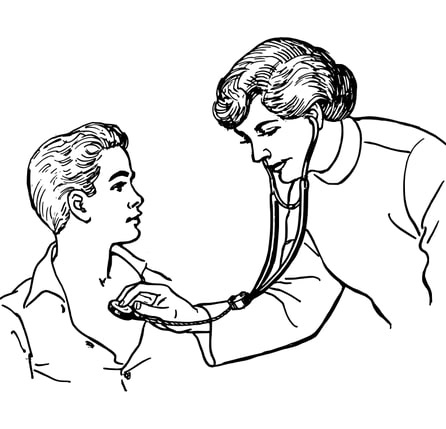A lot of Americans have a fascination with genealogy and ancestry. After all, knowing where we came from can give us a greater appreciation for who we are.
Why Is Family History Important?
But did you know that knowing your family history can also make you healthier?
This is because by looking at what illnesses and disorders your ancestors suffered, you can identify which diseases you may have a predisposition for. Doing so allows you to take steps to ensure you don’t get the disease or, at the very least, mitigate its potential effects.
This article will discuss family histories and answer: why is family history important?
The Importance of Family History
Knowing about your family history confers many social and mental benefits.
It can help you learn more about your cultural background, giving you a sense of belonging to a particular ethnic group. This, in turn, helps you to form deeper connections with other members of that group. That’s because a shared history can help foster stronger relationships with others.
A feeling of connection and belongingness is also great for mental health. In fact, a study by British writer Johann Hari reveals that feeling connected with friends and family is one of the most effective ways to cure and treat substance addiction.
Your family history can also teach you important lessons. For example, you can look at the challenges your ancestors faced and how they solved them. This can give you inspiration, resilience, and solutions if you’re facing similar obstacles in your life.
Finally, knowing about your family history also has bigger implications on your health, as we’ll discuss next.
Why Is Medical History Important?
More than for the social and mental benefits, your family history can also tell you a lot about your health.
Your family’s medical history should contain a great deal about any illnesses and causes of death. Looking at this information allows you to see patterns that may indicate potential medical complications for you.
So, what information found in a family health tree indicates that a disease might have a genetic link? Generally, it’s finding an above-average occurrence of certain illnesses. For example, if many from your family died from breast cancer, then it may be possible that you’re also susceptible.
Of course, there’s more at play beyond just genetics – there are environmental and lifestyle factors as well. But it does give you the chance to take steps and avoid the risk factors that can lead to the diseases your ancestors had.
Why Might a Doctor Ask about Your Family’s Medical History?
Doctors often ask for your family’s medical history or occurrences of certain illnesses because it can be a useful screening tool. It can be an indicator of your risks for certain diseases or disorders. Your doctor may then order specific tests to see if you are at risk for these medical issues.
Your doctor can also prescribe lifestyle changes so that you can reduce your risk. For example, if your family history shows a majority of your ancestors developed heart disease, then you can lessen it by eating healthier or exercising more.
Medical histories are also helpful for people who plan to have children because they can inform them of their offspring’s possible complications. While it’s not 100% guaranteed, they can take steps to avoid them.
For instance, a couple with a family history of certain diseases may be advised to undergo gene therapy to try and counteract it. Or they may be content with the knowledge, so that they’re better prepared for that possibility.
The Benefits of Knowing Your Genetic Family History
One is for health reasons. We’ve already covered this in previous sections, but one point bears mentioning: you can’t change your genes, but you can change your lifestyle.
Knowing if you have a predisposition for a disease lets you get ahead of the issue. Think of it as your ancestors warning you to make better choices so that you can avoid their fate. Plus, you may learn that you are not predisposed for any health issues, which can be liberating.
Ultimately, knowing your genetic history can make you a healthier and better human. It gives you a sense of belonging, compassion, and even a way to predict your future health.
What Should You Do if You Don’t Know Your Family’s Medical History?
Now that you know the answers to “Why is family history important?” your next question is probably: “How do I learn more about my family medical history?”
The straightforward way is to hire a genealogist. However, this can be expensive. A more economical alternative is to visit GenealogyBank. We’re a one-stop resource for your genealogy research, providing more than 13,000 newspapers and 260+ million obituaries from all 50 states. We also have access to U.S. census records so that you can check medical histories from your ancestors from the 1700s onwards.
Want to get started? Visit us today and explore your family’s medical history.

